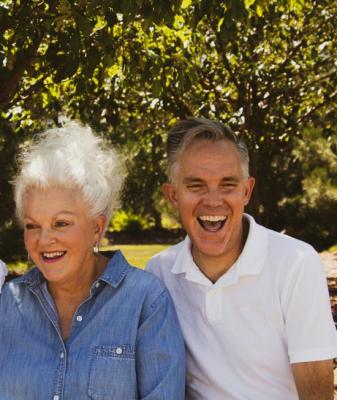A Doctor's Tips for Slowing the Biological Clock
What should we be doing to stay healthy for longer? Meet the scientist who’s testing cutting-edge ageing research on his own body to find the answers
People tell me I look younger than I am. But as flattering as that is, my appearance isn’t that important to me. Well, not compared to my biological age, anyway.
Representing how well your body functions, your biological age gives a more accurate picture of your overall health and longevity potential – reflecting factors like genetics, lifestyle, and environment rather than just the years you’ve lived.
Fundamentally, your biological age represents how long you can live a healthier, happier life. You can measure it in a lab (by looking at how much your DNA has been altered by a chemical reaction called methylation) or at home (for example, by testing your hearing range or how long you can stand on one leg). And, crucially, you can change it.
Ever since I lost my grandparents to Alzheimer’s and Parkinson’s, it’s an idea that’s driven me: could it be possible to slow my biological age? Recently, I lost both my parents to the same terrible diseases. My children are still young, and it’s a huge regret for me that they didn’t get to know my parents. Everyone should be able to experience their parents being part of their children’s lives – especially with them staying healthy into old age.
And this, I think, is the whole point: we want to be healthy for as long as possible. But simply knowing your biological age won’t do much for you – I wanted to know what I could do about it. That’s why I conduct clinical trials in my lab, and why I decided to start testing my anti-ageing experiments on myself.
Think I sound mad? I’m by no means the first scientist to self-experiment. In fact – and make sure you’re not eating when you read this – in 1982, the bacterium that causes gastric ulcers was discovered because the Australian researcher Prof Barry Marshall took extracts of patients’ stomach ulcers and drank the fluid. He gave himself an ulcer that he then cured via penicillin – and won a Nobel Prize for these efforts in 2005. (Luckily, anti-ageing interventions are less gross).























